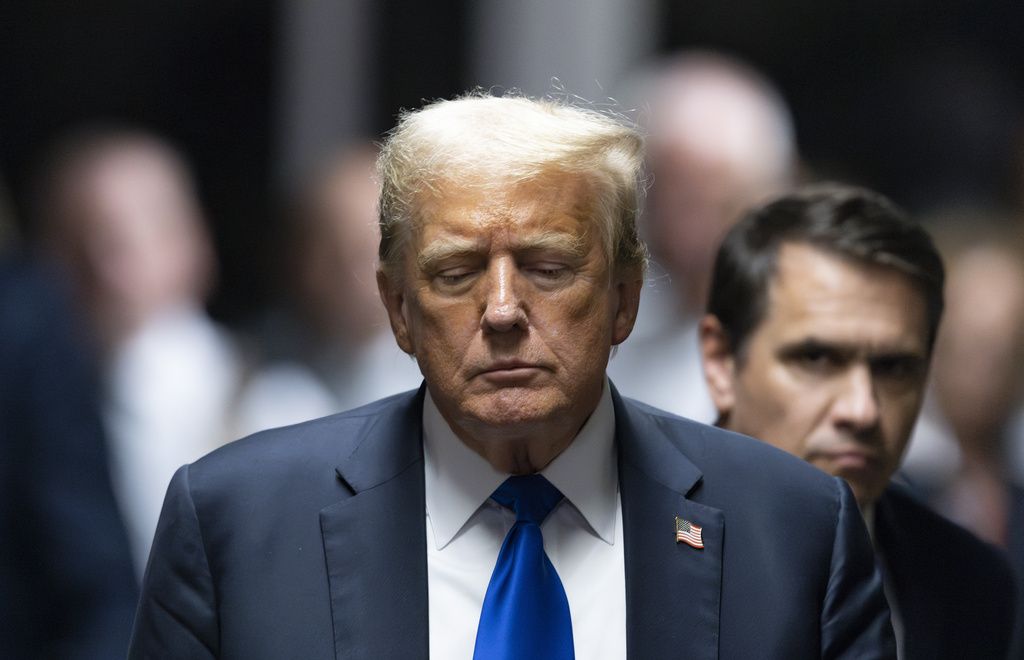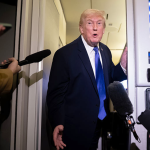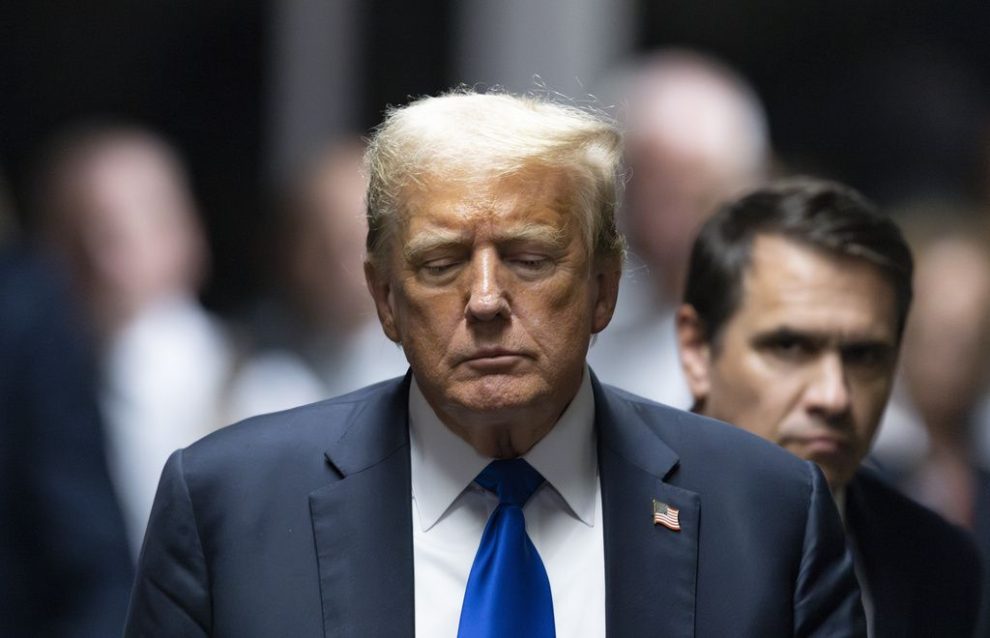NEW YORK — Experts remain divided over how much former President Donald Trump‘s guilty verdict will affect his other three criminal cases now that he has been convicted in his hush money case.
Coming off the verdict in the New York hush money case, Trump’s legal team now faces a range of challenges as they navigate tight schedules, such as hearings in the Florida classified documents case, while preparing for Trump’s sentencing in New York on July 11. Trial Judge Juan Merchan has asked the defense and prosecution teams to file pretrial sentencing papers by June 13, and at some point, Trump will speak with a probation officer for a pre-sentencing report.

For now, legal experts are toiling over the prospects of how this 34-count guilty verdict will affect the Florida case and two similar 2020 election interference cases in Washington, D.C., and Georgia.
Here are the key issues as Trump heads deeper into his additional legal woes.
Can Trump’s guilty verdict be used as evidence in his other trials?
Stacy Lee, a professor of law at Johns Hopkins Carey Business School, told the Washington Examiner that the Manhattan jury’s guilty verdict for Trump “could have significant implications for the other criminal cases he faces.”
“First off, the conviction establishes a legal precedent, demonstrating that Trump can be held accountable in court, which may embolden prosecutors in other jurisdictions,” Lee said.
In Fulton County, Georgia, where Trump faces charges of alleged election interference, the New York verdict might “influence jury perceptions, suggesting a pattern of legal issues and potentially swaying opinions about his credibility and actions,” according to Lee.
Similarly, in Washington, D.C., the conviction could strengthen the narrative that “Trump engaged in unlawful activities to subvert the election results, thereby impacting the prosecution’s strategy and possibly the jury’s view,” Lee said.
Leticia Olster, who has 20 years of experience as a jury and litigation expert, told the Washington Examiner there are some risks for prosecutors to tie in other crimes to bolster their cases.
“It creates risks for the judge to allow them in because of the potential for a reversal of a guilty verdict, which is what happened to Harvey Weinstein,” Olster said, referring to the Hollywood director who was convicted of rape and sexual assault in 2020. Last month, New York’s highest court tossed out those convictions after determining the trial judge unfairly allowed testimony against him based on allegations from other women who weren’t part of the case.
However, some experts said that there may not be much of a knock-on effect from the former president’s conviction, in part because the cases have already suffered from numerous snags and delays prior to the verdict, raising questions about whether Trump will see an additional trial before the Nov. 5 election.
Berkeley Law School professor John Yoo told the Washington Examiner he thinks the other three cases are so far behind that this is the only one that will reach a conclusion before the election, and even this one will not exhaust its appeals before then. Yoo said that all four trials will have scheduling conflicts, “but they can be resolved after the election or will be dropped should Trump win.”
Case Western Reserve University Law Professor Jonathan Entin also said he doesn’t see “that the verdict in the New York case should affect the substance of any of the other cases.”
Trump attorney worried about scheduling conflicts over sentencing
Trump attorney Todd Blanche told Merchan before the judge cleared the courtroom on Thursday that he would like the former president to be sentenced in late July despite Merchan ultimately setting July 11 as the date. Blanche reasoned that the legal team would be busy preparing for a pretrial hearing in the classified documents case.
“I would think that Judge Merchan will do his best to keep the current sentencing date,” Olster said, noting it would be consistent with the way he handled the trial.
Robert Scavone Jr., a former Florida state prosecutor and former clerk at the U.S. Court of Appeals for the 11th Circuit, said Blanche is likely to try to delay sentencing. As for appealing the verdict outright, that step will come once the sentencing is completed.
Blanche “could argue that post-trial motions need to be heard and decided prior to sentencing, so a delay in sentencing is required,” Scavone said, adding that the defense attorney has a little over a month to prepare a motion to set aside the verdict and prepare a sentencing memorandum.
Even if Merchan is inclined to postpone sentencing, it is unlikely the postponement will be for months. But one major conflict that is political rather than legal is the Republican National Convention, which will commence the Monday after the sentencing hearing.
Will Trump’s choice not to testify in New York come back to bite him?
Legal experts have been vocal in the hours since Trump’s conviction over his choice not to testify in the high-profile trial. Trump repeatedly said he would, but perhaps thought he could be hamstrung by the potential to be cross-examined over multitudes of other legal entanglements related to prior civil trials in New York, such as the Trump Organization business falsification case or the two E. Jean Carroll defamation cases.
CLICK HERE TO READ MORE FROM THE WASHINGTON EXAMINER
“I think one way it could affect the future cases is if he chooses to testify in a future case,” said Matthew T. Mangino, a partner at Luxenberg, Garbett, Kelly, and George. He said that Trump’s felony conviction means that it will be used to impeach his testimony at a future trial, a point on which Scavone agreed.
“Obviously, the decision not to testify in New York didn’t go well, and now it might make his testimony useless in a future trial,” Mangino said.
























